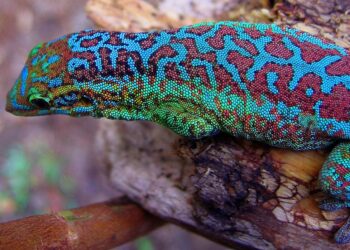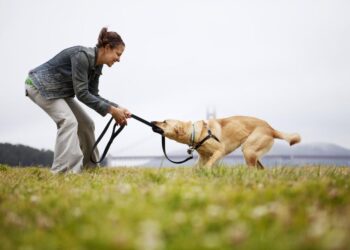Like the man, the dog can have bad breath, which is called halitosis. In most cases, this is due to poor oral hygiene and tartar formation. However, this is not routine and nauseating breath can hide behavioral problems, digestive problems or other more serious illnesses.
It is therefore important to consult your veterinarian and take appropriate action to correct it. Discover our solutions to overcome the bad breath of your dog.
What are the causes of bad breath in dogs?
When your dog smells bad and the approach becomes unbreathable, it is called halitosis. This is simply the medical term for bad breath. Intraoral oral halitosis is mentioned when it is a dog mouth disorder and extraoral halitosis if the origin of bad breath comes from elsewhere.
Bad breath can have several origins in dogs.
Dental calculus
Tartar is caused by a mixture of bacteria, food residues and dead cells that build upon the teeth to form a hard film to protect the installed bacteria. These are naturally present in the mouth of the dog and they contribute to its balance. On the other hand, when they develop to form a thick tartar plaque, the gum may be prone to inflammation that causes irritation and a bad odor.
If nothing is done to relieve the animal and remove tartar, the bacteria attack the gums that bleed and bleed deeply. We then speak of periodontal disease. Subsequently, the bacteria pass into the dog’s blood and may cause infections in other organs.
Ingestion of smelly foods
Ingestion of smelly foods can cause bad breath in dogs, as they do in humans. This bad breath is then transient and will last until the food in question is fully digested and evacuated in the stool. Some dogs are attracted to bones, leftover food or other foods with a strong, unpleasant odor.
Some animals also have a bad habit of eating their stools, which is called coprophagia. This action may be due to behavioral problems, poor nutrition or illness. It is important to determine their origin in order to find a suitable solution.
Finally, some dogs lick their anus when their anal glands are engorged. A nauseating odor escapes and contaminates their mouths. In this case, the glands must be emptied by the veterinarian or by you.
Development of bacteria
The dog’s mouth contains a large number of bacteria that help break down food. Unfortunately, they act by releasing a foul gas and cause bad breath. Tartar and mouth sores reinforce the presence and work of these bacteria, thereby increasing halitosis.
Diseases
Some diseases can cause bad breath of the dog. This is particularly the case of diabetes because the body of the animal produces ketone bodies making the breath nauseating. The same is true with kidney failure problems that give the breath an ammonia odor.
Halitosis can also be explained by the presence of small oral tumors or digestive disorders.
Remedy for bad breath in dogs
When you notice that your dog has bad breath and that it does not go away, it is recommended to consult your veterinarian. He will be able to advise you and make sure that your animal is not suffering from an illness.
To help you deal with the bad breath of your dog, there are several solutions.
Brushing teeth
To prevent bacteria from spreading in your dog’s mouth, you will need to brush his teeth from time to time. To do this, use a dog toothbrush or a flexible finger cot adapted to your teeth, as well as a canine toothpaste sold at the vet.
Of course, your dog will not be able to rinse his mouth and spit out the product, which is why you should use a suitable toothpaste that he can swallow safely. Brush your dog’s teeth gently so as not to irritate your gums.
If you can not brush your dog’s teeth once a day, try to do it at least 3 to 4 times a week to get an effective result.
Give a bar to chew on your pet every day. In addition to occupying it, it will take care of its teeth by preventing the deposit of tartar.
If you notice that the base of your dog’s teeth is covered with tartar (a yellow-brown border), consult the veterinarian to have it perform a descaling procedure. Do not wait for it to expand to prevent periodontal diseases from developing.
Natural treatments based on hydrolates or algae also work gently to eliminate odors and avoid the formation of scale. Ask your veterinarian.
The descaling
Scaling is essential if your dog has tartar on his teeth. If you do not, the bacteria will grow more in your mouth and cause more serious lesions, bleeding, and conditions.
The descaling is done under general anesthesia. The veterinarian cleans your dog’s teeth and can pull some or polish others to remove all the residue.
You will then need to give antibiotics to your pet and follow the advice of your veterinarian to prevent scale from reappearing.
Complementary examinations
If you find that the bad breath of your dog persists despite this and that it is accompanied by other symptoms, such as disorders of digestion, the formation of masses in the mouth, coprophagia or polydipsia (an excessive thirst, often synonymous with diabetes), go back to your veterinarian for further tests.
It will begin with a blood test to detect a potential problem with other organs and imaging tests to confirm a diagnosis. He will then prescribe a suitable treatment.







